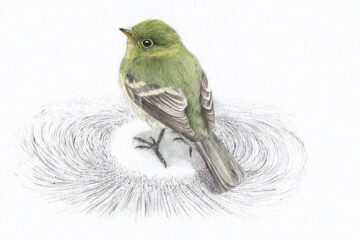Molecular switch identified that controls key cellular process

In a study published online this week in the Proceedings of the National Academy of Sciences, scientists at the Ludwig Institute for Cancer Research in Oxford discovered a critical molecular switch that regulates autophagy. They also studied the links between autophagy and a cellular process called senescence that stops cell growth permanently.
The researchers identified ASPP2, a tumor suppressor, as a molecular switch that can dictate the ability of a common cancer gene, known as the RAS oncogene, to either stop or promote senescence.
As Yihua Wang and researchers in Xin Lu's group at the Ludwig Institute investigated the life cycle of fibroblast cells – the most common connective tissue cells in animals – they found that reduced levels of the ASPP2 protein increase RAS oncogene-induced autophagic activity. This in turn prevented cells from entering senescence. Without ASPP2, the cells continued to proliferate unchecked, thereby promoting tumor growth.
ASPP2 is known to play a role in suppressing tumor development. Mice that have a deficiency or malfunction in this protein have a predisposition to developing tumors. And low ASPP2 levels in patients are linked to poor prognoses in cancers, such as large B-cell lymphomas. Reduced ASPP2 expression has also been observed in highly metastatic breast tumors. But until now, researchers did not understand why.
“We found that in the presence of the common cancer-causing RAS oncogene, ASPP2 interacted with a protein complex that is responsible for deciding cell fate via autophagy,” said Yihua Wang, PhD, Ludwig researcher in Oxford.
“What this means is that the cell's emergency stop button is disabled when ASPP2 expression is reduced or lost, allowing it to proliferate unchecked as with cancer,” added Wang.
“The balance between the RAS oncogene and ASPP2 activity is crucial to determining whether or not tumor growth is promoted. Our next step will be to identify ways to alter ASPP2 activity at that critical switch point. This could be an effective way to treat cancers with reduced ASPP2 expression and mutated RAS, such as breast and colon cancers,” concluded Wang.
“Some of the recently developed anti-cancer drugs are potent inducers of autophagy. The new findings may also offer an explanation as to why patient response to these drugs can vary dramatically. There are factors at play within the body that can dictate authophagic activity and impact clinical outcomes,” said Xin Lu, PhD, director of Ludwig's Oxford Branch. “While further study is needed, these findings may in the longer term help doctors to identify patients who are more likely to respond well to autophagic inhibition,” added Lu.
About The Ludwig Institute for Cancer Research
LICR is an international non-profit organization committed to improving the understanding and control of cancer through integrated laboratory and clinical discovery. Leveraging its worldwide network of investigators and the ability to sponsor and conduct its own clinical trials, the Institute is actively engaged in translating its discoveries into applications for patient benefit. Since its establishment in 1971, the Institute has expended more than $1.5 billion on cancer research.
Media Contact
More Information:
http://www.licr.orgAll latest news from the category: Life Sciences and Chemistry
Articles and reports from the Life Sciences and chemistry area deal with applied and basic research into modern biology, chemistry and human medicine.
Valuable information can be found on a range of life sciences fields including bacteriology, biochemistry, bionics, bioinformatics, biophysics, biotechnology, genetics, geobotany, human biology, marine biology, microbiology, molecular biology, cellular biology, zoology, bioinorganic chemistry, microchemistry and environmental chemistry.
Newest articles

How evolution has optimised the magnetic sensor in birds
The magnetic sense of migratory birds is probably based on the protein cryptochrome 4, and a genetic study has now provided further support for this theory. A team of researchers…

Molecular Fingerprint Beyond the Nyquist Frequency
Ultrafast laser spectroscopy allows the ascertainment of dynamics over extremely short time scales, making it a very useful tool in many scientific and industrial applications. A major disadvantage is the…

High-energy-density aqueous battery based on halogen multi-electron transfer
Traditional non-aqueous lithium-ion batteries have a high energy density, but their safety is compromised due to the flammable organic electrolytes they utilize. Aqueous batteries use water as the solvent for…





















